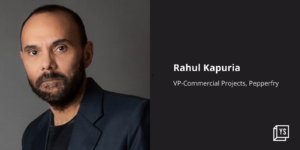When Sumant Kakaria was looking to expand his two-year-old footwear brand, Solethreads, to offline stores – instead of turning to investors, Sumant – the Founder and Chief Executive Officer of Solethreads, took on venture debt of Rs 2.50 crore from Mumbai-headquartered Alteria Capital.
Similar was the case with late-stage furniture rental firm Rentomojo, which raised Rs 130 crore in a debt, along with equity, in their latest funding round.
— which has backed startups including hyper-local delivery player , recent unicorn and, Ananth Narayanan-led — closed their second fund, which is the biggest in the ecosystem so far. The move comes at a time when more founders are turning to raise a mix of debt and capital to fund growth.
On the second instance of funding raising for Solethreads, Sumant preferred to raise venture debt in order to prevent equity dilution.
“Even one percent of equity is very important as we go on to build our firm,” Sumant told YourStory in an interaction.
The lure of avoiding every possible equity dilution is justified because founders give a lot more than their time and energy to make an idea work, and grow.
And, that urge to grow on capital borrowed for two to three years, which costs upwards of 12 percent and also goes beyond 18 percent per annum seems sensible.
E-commerce, fintech and healthtech are the top three sectors to adopt venture debt.
A startup founder, who is in the process of raising venture debt, told YourStory that they felt that they needed to grow their revenues a bit more faster than they were growing at. And to them, opting for venture debt ‘was the best way to raise funds at their current stage’.
This shift in thought process is fueling the growing boom in the debt ecosystem. Siddharth Talwar — a former entrepreneur, and partner at claims to push Lighbox’s portfolio firms towards raising some debt during funding rounds.
“Taking debt forces you to be more diligent on your finances. A lot of entrepreneurs used to be fearful of taking on debt. Myself included,” says Siddharth.
“But it is a great practice to start with some debt because when you are very young, all you have is equity and the value of the startup. You (founders) are diluting a lot in order to take on equity. This is very important to understand in early stages,” adds Siddharth.
Siddharth’s advice to founders is sensible. And somehow it is a partial necessity that some early-stage investors motivate their investee startups’ founders to choose venture debt over incremental equity.
“After all, every time the founders seek equity funding from existing investors, or mix of old and new, the existing investors have to co-invest to hold the preferred level of stake in the startup, or see it dilute in case they choose not to participate in subsequent funding round(s),” says a founder of a boutique investment bank which advises startups and small and medium businesses on fund-raising.
In the initial stages, any venture capital firm would ask for 10-20 percent of the firm in exchange for cutting the first cheque. This was one of the reasons why Nykaa’s founder Falguni Nayar approached family offices and private equity firms when she had to raise capital.
Today, as the Indian startup ecosystem becomes more than 15 years old, many founders have realised that alternate sources of capital can come handy and diluting equity is not the best option when it comes to raising capital.
While the number of deals have not increased drastically the cheque sizes have clearly gone up.
While banks and non-banking financial institutions (NBFCs) would hesitate to fund loss-making startups, venture debt firms do step-in with, or after, venture capitalists, to increase the startup’s growth runway.
While Alteria Capital, which has Rs 2,500 crore assets under management, recently closed Rs 1,800 crore in the final close of its second fund. As the market appetite grows, Alteria’s competitor also closed the first round of Rs 750 crore ($100 million) of its Trifecta Venture Debt Fund-III.
“When we came into the market back in 2015, a lot of heavy lifting had to be done to educate investors about our product, and explain how venture debt works as an asset class,” says Rahul Khanna, Managing Partner at Trifecta Capital.
It took nearly two years for Trifecta Capital to fully close fund I, and fund II took 18 months, while the latest fund’s first closing happened only in about 60 days, according to Rahul. “For Fund III, which will end up being Rs 1,500 crore, we would probably be done fundraising around Q1:CY2022,” Rahul adds.
Up till November 2021, startups across the country raised $339 million in venture debt, across 45 deals, compared to $124 million invested in 2020, across the same number of deals, according to data from Venture Intelligence. Clearly, entrepreneurs are getting larger cheques to fund growth.
Trifecta Capital and Innoven capital, which entered India back in 2008, which usually enter startups at the growth stage, are also looking to back firms in their early stages.
“We at Innoven are sector agnostic and engage with companies early. The intent is to build a long lasting partnership and support our high conviction portfolio companies as they grow with their debt requirement,” says Tarana Lalwani, Founding Partner, Innoven Capital.
The trend is largely seen in the Thrasio-like startup space including Mensa Brands, and GOAT Labs, and the direct-to-consumer startups. While venture debt is becoming increasingly available to early-stage startups, the investor still considers a firm’s ability to return the debt. As D2C startups have a product to grow, it shows a clear path in the growth sense.










